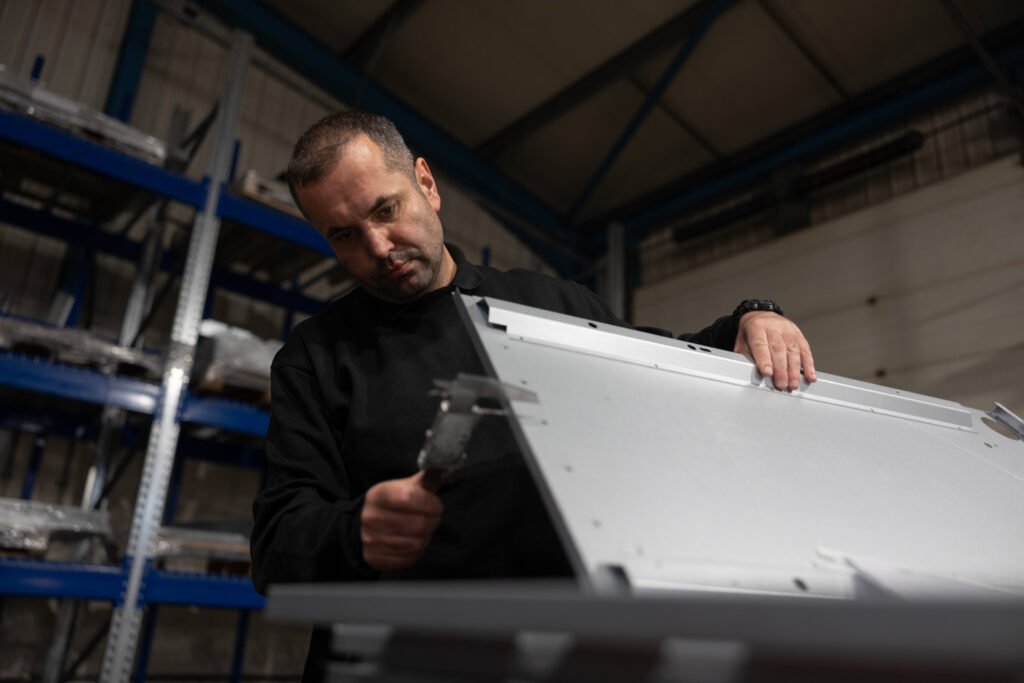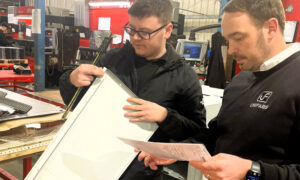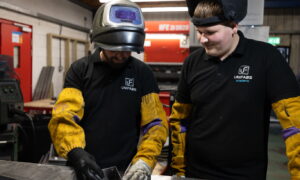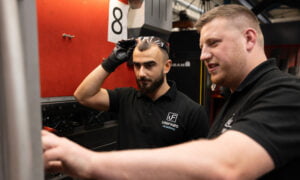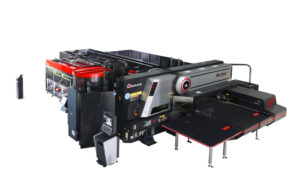Here are some frequently asked questions about sheet metal fabrication
Have a question of your own?
Please get in touch
+44 (0)2476 393889
sales@unifabs.eu
In simplest terms, metal fabrication involves making metal structures and products through processes like profiling, forming, and welding.
Metal fabrication plays a crucial role in producing a wide range of products, from small components to large structures. It involves utilising a range of techniques or processes to shape raw metal materials into finished products.
Many people confuse the term “fabrication” with welding, but welding is just one of the many processes that fabricators use. Most metal fabrication involves using sheet metal, which fabricators convert into finished components through punching, folding, and welding.
Sheet metal is metal which has been formed into flat pieces, typically via an industrial process. It can vary from thick sheets or ‘plate’, right down to thin sheets known as foil or leaf.
Many metals can be formed into sheets, including steel, aluminium, copper, brass, tin, nickel, and titanium. Precious metals such as silver, gold and platinum can also be produced in sheet form.
Subsequent manufacturing processes like those we perform at Unifabs transform the flat metal sheets into shapes through profiling and bending processes.
There are a wide range of processes that can be utilised in the manufacturing of sheet metal. Punching, cutting, bending and welding are the most common types of processes involved in sheet metal manufacturing. Depending on the product a combination of processes may be required to produce the desired end result.
Components often begin with punching or cutting to create the required shape. Punching is the process of creating a perforation or form by applying force to create either an indent or to cut through the material. It is often performed on a CNC punch press machine using a punch tool and mating ‘die’ at high speeds to produce the desired pattern.
Laser cutting involves using a highly focused light beam (laser) to cut through a sheet of material. This cutting method achieves the desired result by melting, burning, vaporising, or blowing away material with a jet of gas, leaving a high-quality cut surface finish.
Metal bending, or press braking is the process used to bend or form a sheet of metal into a desired shape. Press brakes use various tools to achieve a wide range of angles and forms. Metals can also be bent utilising panel bending machines like the Salvagnini P2 Lean at Unifabs. This bending machine utilises automation to manipulate the sheet metal and produces bends in both directions without needing to flip the material.
Sheet metal welding is typically one of the final processes that occurs prior to any coating, finishing or assembly work. Welding is the process of turning individual components into welded assemblies through the use of MIG, TIG, spot and robotic welding.
There are many different metals that can be processed in sheet form, the most common being steel, stainless steel and aluminium.
At Unifabs we are experienced in the manufacture of products using the following: mild steel, stainless steel, aluminium, pre-galv, zintec, brass.
Each of our manufacturing service pages details the materials we typically process. If you have different requirements, please contact us to discuss them.
Many products you use or encounter daily have undergone a metal fabrication process or include sheet metal components. This includes everything from your household appliances, like your boiler or washing machine, to parts of your car. Whether it’s a simple bracket or a more complex structure, Unifabs has extensive experience across a wide range of industries. We produce various metal fabricated products for the UK market, including parts for tractors, doors and enclosures, self-service food kiosks, and more. Check out sectors or case studies for more information on types of sheet metal fabricated products.

We’re proud of every product we make
Stay ahead of the competition, utilise our wide range of services and get your products to market with ease.
